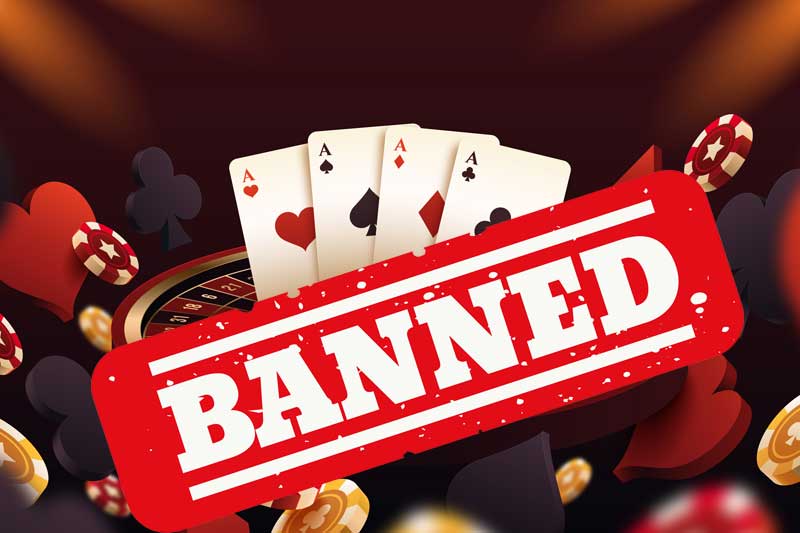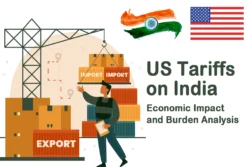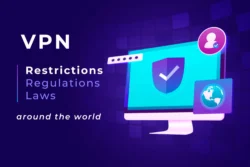On August 20, 2025, at 6:34 PM IST, the Lok Sabha passed the Promotion and Regulation of Online Gaming Bill, 2025, a landmark legislation introduced by Union Minister for Electronics and Information Technology Ashwini Vaishnaw. This bill represents a seismic shift in India’s digital economy, aiming to nurture non-monetary gaming sectors like e-sports, educational games, and social gaming while imposing a sweeping ban on all online real-money games. Triggered by mounting concerns over addiction, financial fraud, mental health crises, and national security risks—exacerbated by extreme cases, including suicides linked to gaming debts—the bill seeks to protect vulnerable populations, particularly youth. With cabinet approval secured just a day earlier, its passage amid opposition protests underscores the contentious balance between public welfare and the economic interests of an industry valued at approximately ₹310 crore in 2024, with projections to reach ₹760 crore by 2029.
The legislation marks a decisive departure from India’s earlier patchwork of state-specific regulations and judicial interpretations that distinguished “games of skill” from “games of chance.” Fueled by Prime Minister Narendra Modi’s call to safeguard citizens from the perils of online gambling, the bill eliminates this distinction, criminalizing all real-money gaming activities. It not only targets platforms but also advertisers, influencers, and financial institutions facilitating such games, signaling a zero-tolerance approach. This article provides an in-depth analysis of the bill’s background, provisions, affected platforms, enforcement mechanisms, and the broader implications for India’s gaming ecosystem, which supports over 400 companies and 155 million players.
Background: The Evolution of Online Gaming Regulation in India
India’s online gaming industry has seen exponential growth, driven by widespread smartphone adoption, affordable data, and platforms like Dream11, which alone boasts a valuation of ₹670 crore. In 2024, the sector engaged over 155 million users in real-money games like fantasy sports, rummy, and poker, contributing significantly to GST revenues and digital advertising. However, this boom brought challenges, including addiction, financial distress, and reports of money laundering through unregulated platforms. Historically, regulation was fragmented, with states like Tamil Nadu, Karnataka, and Andhra Pradesh enacting bans on specific real-money games, often overturned by courts citing the Public Gambling Act of 1867, which permitted skill-based games like rummy and poker.
Judicial precedents, including Supreme Court rulings, upheld the legality of skill-based games, creating a gray area exploited by platforms. The 2023 draft rules by the Ministry of Electronics and Information Technology (MeitY) proposed self-regulatory bodies for age verification and KYC norms but faced criticism for lacking teeth. Public outcry over gaming-related suicides and fraud, coupled with Prime Minister Modi’s advocacy for stricter measures, shifted the narrative. The 2025 bill, building on these concerns, adopts a prohibitive stance, overriding state laws and court rulings to create a uniform national framework that bans all real-money gaming, regardless of skill or chance.
Key Provisions of the Bill
The Promotion and Regulation of Online Gaming Bill, 2025, officially titled “A BILL to promote and regulate the online gaming sector including e-sports, educational games, and social gaming,” establishes a robust framework to promote safe gaming while eliminating monetary risks. Below are its core components:
Definitions
- Online Money Game: Any digital game requiring users to pay fees, deposit money, or place stakes with the expectation of monetary or equivalent rewards (e.g., credits, tokens convertible to cash). This encompasses both skill-based (e.g., poker) and chance-based (e.g., slots) games, excluding e-sports.
- E-Sport: Competitive, skill-based multiplayer events recognized under the National Sports Governance Act, 2025, with entry fees limited to administrative costs, prohibiting betting or cash rewards.
- Online Social Game: Entertainment-focused games without monetary stakes, permitting subscription fees or in-app purchases for non-cash enhancements.
- Other Stakes: Includes virtual items (e.g., skins, tokens) convertible to real-world value.
Prohibitions
The bill imposes a nationwide ban on:
- Operating, facilitating, or participating in online money games, including app-based and web-based platforms.
- Advertising or endorsing such games, targeting influencers, celebrities, and media outlets with strict penalties.
- Financial transactions linked to these games, barring banks, UPI platforms, and payment gateways from processing related payments.
- Offshore platforms targeting Indian users, with provisions to block their access via ISPs and app stores.
This approach nullifies prior legal distinctions, criminalizing all real-money gaming to address addiction, fraud, and underage access.
Penalties
Violations carry severe consequences:
- Operators, facilitators, or advertisers face up to 3 years imprisonment and/or fines up to ₹1 crore.
- Influencers or endorsers promoting banned games risk up to 2 years imprisonment or ₹50 lakh fines.
- Financial institutions processing transactions face fines and regulatory action.
- Authorities are empowered to conduct warrantless searches and seize assets, with repeat offenders facing business closures.
Regulatory Framework
- A central Online Gaming Authority will oversee compliance, register permissible games, and issue guidelines.
- E-sports will receive incentives, including tax breaks and international event support, aligning with global trends like the 2027 Olympics.
- Mandatory consumer protections include age verification, parental controls, data privacy, and addiction warnings.
- Platforms must submit quarterly compliance reports, with non-compliance triggering license revocation.
Exceptions
- E-sports, educational games, and social games without cash winnings.
- In-app purchases for cosmetic or functional enhancements (e.g., skins, power-ups) not convertible to money.
Gaming Platforms That May Be Banned
The bill’s broad definition of “online money games” threatens over 400 companies and 155 million players. Below is a detailed table of major real-money gaming platforms in India, categorized by type, likely to face bans or forced transitions to free-to-play models:
| Category | Platforms | Description | Estimated User Base (2024) | Valuation (₹ Crore) |
|---|---|---|---|---|
| Fantasy Sports | Dream11, My11Circle, MPL (Mobile Premier League), Games24x7 (MyTeam11), KheloFantasy, WinZO, Gamezy, SG11 Fantasy | Users pay entry fees to create virtual teams, winning cash based on real-world sports performance (e.g., IPL cricket). | 100 million+ | Dream11: ₹670; MPL: ₹210 |
| Rummy & Card Games | RummyCircle, Junglee Rummy, Adda52, PokerBaazi, Gamezy Rummy | Skill-based card games with entry fees and cash prizes, often marketed as legal under prior court rulings. | 30 million+ | RummyCircle: ₹50+ |
| Poker | PokerStars India, Spartan Poker, Baazi Games | Online poker rooms with real-money stakes, popular among urban youth. | 15 million+ | Spartan Poker: ₹20+ |
| Casino-Style | Zupee, Ability Games, 99Games | Digital blackjack, roulette, slots, or hybrid skill/chance games with cash rewards, often offshore-hosted. | 10 million+ | Zupee: ₹15+ |
| Other | Delta Corp (operates Adda52), Nazara Technologies (invests in RMG) | Conglomerates or multi-game platforms with real-money components. | 5 million+ | Delta Corp: ₹100+ |
These platforms, many backed by global investors, face existential threats. The All India Gaming Federation (AIGF) estimates 200,000 job losses and a potential shift to unregulated offshore platforms, increasing risks of fraud and tax evasion.
Enforcement Mechanisms
The bill empowers the Online Gaming Authority to:
- Monitor and block non-compliant platforms via IP restrictions and app store removals.
- Coordinate with the RBI and NPCI to halt financial transactions, including UPI and bank transfers.
- Conduct public awareness campaigns about gaming risks, targeting schools and colleges.
- Collaborate with international agencies to curb offshore operators targeting India.
Compliance costs for permissible games are estimated at ₹5-10 lakh per platform annually, potentially burdening smaller developers. Non-compliance risks immediate shutdown and criminal prosecution.
Impact on the Industry and Stakeholders
Economic Ramifications
The ban could cripple a sector employing over 200,000 people and generating ₹20,000 crore in annual GST revenue. Advertising losses for OTT platforms, broadcasters, and sports leagues like the IPL are projected at ₹2,000 crore annually, as real-money platforms were major sponsors. Listed companies like Delta Corp and Nazara Technologies may face stock declines, with Dream11’s ₹670 crore valuation at risk. Foreign investment, which fueled the sector’s growth, may dry up, redirecting to markets like Southeast Asia.
Social and Consumer Effects
Supporters, including government officials, argue the ban protects youth from addiction, financial ruin, and mental health crises, citing cases of suicides linked to gaming debts. Critics, including gamers and industry bodies like AIGF, warn of a black market surge, with users accessing unregulated offshore sites via VPNs, increasing risks of fraud and data breaches. E-sports, however, stands to gain, with government backing potentially positioning India as a global leader by the 2027 Olympics.
Global Comparisons
India’s approach is stricter than Europe’s licensing models (e.g., UK’s Gambling Commission) or Southeast Asia’s regulated frameworks (e.g., Philippines). It aligns more closely with China’s restrictive youth gaming policies, limiting playtime and monetization. This could undermine India’s ambition to be a global gaming hub, as developers may relocate to jurisdictions with clearer regulations.
Challenges and Future Outlook
The bill faces potential hurdles:
- Legal Challenges: Platforms like Dream11 may challenge the ban in courts, citing prior rulings on skill-based games.
- Enforcement Gaps: Blocking offshore platforms is technically challenging, with VPNs enabling user access.
- Economic Fallout: Job losses and reduced GST revenue may pressure the government to revise the ban’s scope.
Pending Rajya Sabha approval and presidential assent, the bill’s implementation timeline remains unclear. Industry stakeholders are exploring free-to-play models or pivoting to e-sports, but the transition is costly. Public response is mixed, with gamers decrying lost entertainment and operators warning of a “digital prohibition” era.
Conclusion
The Promotion and Regulation of Online Gaming Bill, 2025, reflects India’s bold attempt to prioritize public welfare over the economic allure of real-money gaming. By banning platforms like Dream11, RummyCircle, and MPL, it aims to curb addiction and fraud but risks dismantling a ₹310 crore industry. As e-sports gains legitimacy, the broader gaming ecosystem faces a crossroads—adapt to a non-monetary future or navigate a murky underground market.







